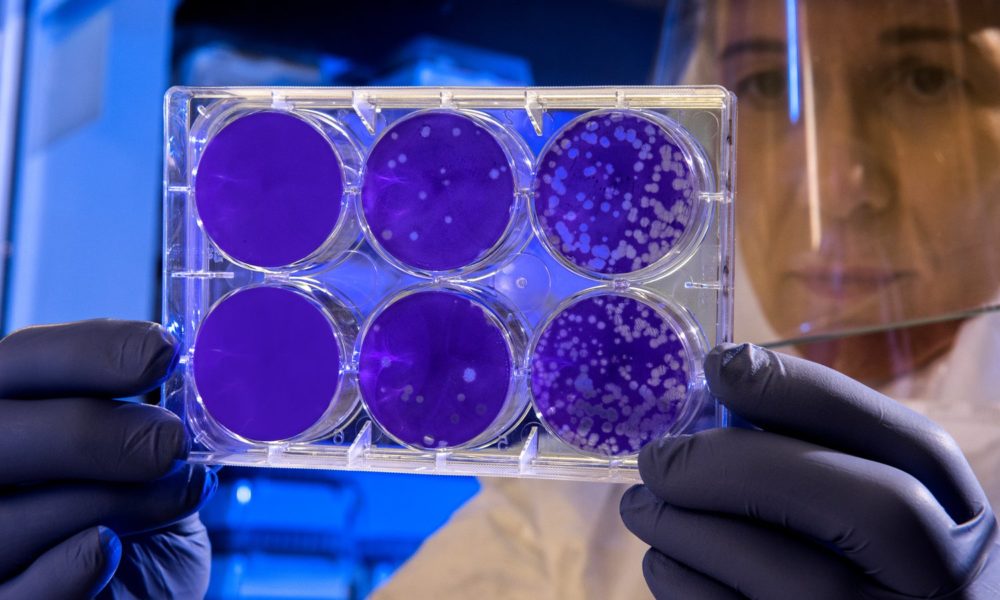“At the start of every disaster movie, there is a scientist being ignored.” – 2017 March for Science protest sign
The novel coronavirus, known as COVID-19, may be the most intense international public health crisis seen in the last few years. In the coming days, as COVID-19 inches towards becoming a full-on pandemic, it will become more important than ever to listen to the scientists and public health professionals advocating for disease control and prevention measures based on the best available science. But the unfortunate truth is that the Trump Administration has carried out actions that appear to leave the US less prepared to face the threat of this disease.
The current state of play
COVID-19 has been detected in at least 29 countries and has already caused worldwide changes – it has caused stock markets to plummet, disrupted global trade, unsettled worldwide travel, bred conspiracy theories and misinformation, and fostered racist attacks against people of Asian origin. COVID-19 is a hard disease to control, since an infected person on average is spreading the disease to two or three other people; COVID-19 has symptoms that easily resemble other diseases such as the common flu; and asymptomatic people can spread the virus.
The Centers for Disease Control and Prevention (CDC) is actively preparing for the likelihood that COVID-19 will establish a “foothold in the US.” On Feb 25, officials at the CDC and National Institutes of Health (NIH) told the public to prepare for the “inevitable” spread of the coronavirus within the US, saying that “It’s not a question of if this will happen, but when this will happen, and how many people in this country will have severe illnesses.” On Feb 26, CDC officials confirmed that America’s first case of coronavirus with an unknown origin has occurred in Northern California.
When science is ignored during a public health crisis
Governments around the world should listen to the voices of scientists and public health experts and be cautious with official public statements as they work to control the virus’ spread. Yet there are already some worrying signs that science is being devalued.
The Trump administration’s pattern of sidelining science—including censoring scientific experts, disbanding scientific advisory committees, and suppressing scientific research—has even occurred in times of crisis. For instance, when Hurricane Dorian was barreling towards the Bahamas and US East Coast, federal scientists were repudiated by administration officials for correcting a false assertion by President Trump of the storm’s path.
Twice already President Trump has spread misinformation about COVID-19 which could complicate future efforts to control the disease in the US (he claimed without evidence that it is a seasonal virus that typically “will go away in April” and falsely claimed that “we’re very close to a vaccine”). The Trump administration has established a mandatory quarantine and travel ban for people who recently visited China’s Hubei province, which public health experts say could hinder the ability to treat and monitor people who have been potentially exposed. Also, the Washington Post reported that, while evacuating American citizens from the Diamond Princess cruise ship, the State Department overrode the concerns of CDC officials and allowed 14 people who tested positive for the virus to be on the same airplane as cruise passengers that had tested negative for the virus. CDC officials were so disturbed by these actions they requested that their names be stricken from the news release.
Infectious disease detection and response systems have been compromised
Several recent Trump administration actions have weakened our ability to respond to novel disease threats. Two global disease surveillance systems, whose goals were to stop future outbreaks at their sources, have been shuttered or dramatically weakened. For example, in 2018, the CDC was forced to close or downsize its efforts to fight global epidemic outbreaks in 39 out 40 countries, including China. In 2019, the Trump administration shut down the US Agency for International Development’s (USAID) 14-year-old program of working with local researchers around the world to collect samples and better understand viruses in animals (75 percent of new and emerging infectious diseases, including COVID-19, originate in animals).
Several CDC scientists expressed concerns in a 2018 survey that the Trump administration is defunding, deprioritizing, and reducing scientific capacity in systems meant to detect and control infectious disease outbreaks. Responses from the survey include:
- “The idiotic myopia of not wanting to fund ‘global health’ work will certainly come home to roost, with the next flu, ebola, SARS, zika, whatever else pandemic.”
- “Talk of defunding global health initiatives has caused my division to start terminating research collaborations with international laboratories that function as infectious disease surveillance sites in Africa and Asia.”
- “Proposed funding cuts limits our [agency’s] capacity for responding to infectious disease overseas and domestically. These cuts don’t just affect our ability to prepare and respond at a federal level either. These will disproportionally affect smaller state and local health departments and grant funded programs.”
High-level leadership is critical when preventing and controlling disease outbreaks
Experienced leadership is particularly important when combating a threat like COVID-19, as an effective response inevitably requires the rapid and coordinated functioning of various governmental agencies across the nation. And yet, appointees that oversee our public health agencies lack experience in managing global health threats. The Trump administration has been systematically failing to fill vacancies on scientific leadership positions as compared to the past two administrations.

In the first three years of their administrations, Presidents Barack Obama and George W. Bush filled nearly every scientific leadership position. President Trump failed to appoint anyone to nearly half of these positions before his three-year mark.
In 2017, the White House’s National Security Council had a dedicated global health security team composed of a group of world-class infectious disease and public health experts. The team had been developing a comprehensive strategy to defend the United States against disease pandemics and biological attacks by terrorists. But in 2018, when John Bolton assumed the role of national security advisor, the head of this biosecurity team, Rear Admiral Tim Ziemer—a highly experienced public health official who had also served under the Bush and Obama administrations—abruptly left, as part of a reorganization under Bolton. Bolton soon disbanded the entire biosecurity team, causing an outcry from healthcare professionals. Additionally, White House homeland security advisor Tom Bossert, a staunch advocate of infectious disease preparedness and the biodefense strategy, left soon after.
Global health security experts have said that we are likely already witnessing the repercussions of this dismantling of the White House’ pandemic response team. A strong leadership structure to combat COVID-19 (currently, there is no clear chain of command in the federal government to respond to pandemics) would have the authority to develop a coordinated system to disseminate accurate, up-to-date information about the spread of disease to the public.
We have to listen to the scientific experts
The threat posed by COVID-19 is undeniable. The World Health Organization recently confirmed that, for the first time, more new cases were being reported outside of China than within China. And despite having a low risk of causing death, COVID-19 has already resulted in more deaths than that caused by the SARS (severe acute respiratory syndrome) and MERS (Middle East respiratory syndrome) epidemics, combined.
Health officials warn that it is almost inevitable that COVID-19 will start to spread through communities in the US. The American Public Health Association has stressed the need for a strong public health infrastructure to respond to health threats like COVID-19 and the National Nurses United have described the importance of protecting healthcare workers from infection during this crisis. At times like these, we need to have decisionmakers that value the input of scientists and public health professionals and are willing to enact solutions based on the best available science. So far, the Trump administration has not engendered confidence that they will listen to the scientific experts as the COVID-19 crisis unfolds.

